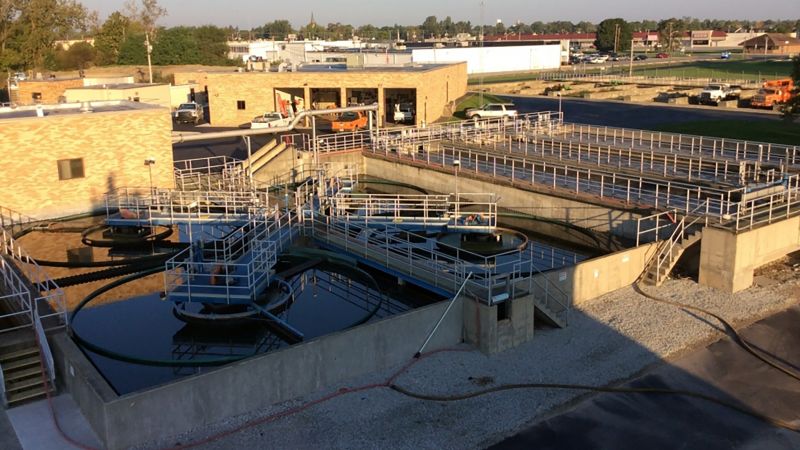Hackers targeted a wastewater treatment plant in Indiana, prompting plant managers to investigate suspicious activity. A Russia-linked hacking group claimed responsibility, similar to incidents against water facilities in Texas. Despite being targeted, the plant remained operational, with minimal disruption. Federal authorities are investigating the incident, with Homeland Security’s Cybersecurity and Infrastructure Security Agency involved.
Russian-speaking hackers claimed credit for the cyberattack in a video posted to social media. This attack is part of a trend of Russian-speaking hackers targeting water facilities in small American towns. US officials have been warning of threats to water systems and the need to improve defenses. The cybersecurity firm Mandiant linked the hackers claiming responsibility for the attacks to a unit of Russia’s GRU military intelligence agency, but it’s unclear if the GRU or other hackers are behind individual attacks.
Cyberattacks on water and wastewater systems are occurring throughout the United States. Water facilities must enhance their defenses against these persistent threats. The Russian-speaking hackers have targeted industrial equipment that was accessible online in some cases. The video posted by the hackers showed them manipulating software used in the Tipton wastewater treatment plant, but experts say their actions were amateur and would not significantly impact the plant’s operations.
The incident at the Indiana wastewater treatment plant is part of a larger issue of cybersecurity threats to critical infrastructure. The ongoing attacks highlight the vulnerabilities in water systems and the need for increased security measures. US national security adviser Jake Sullivan has emphasized the importance of strengthening defenses against these cyber threats. The involvement of Russia-linked hackers raises concerns about the potential for further attacks on essential services in the US.
The hacking incident in Indiana serves as a wake-up call for the water industry to bolster its cybersecurity efforts. Water and wastewater facilities face a growing threat from malicious actors looking to disrupt critical services. The attacks on these facilities underscore the need for collaboration between government agencies, cybersecurity firms, and the private sector to defend against cyber threats. It is essential to take proactive measures to protect essential infrastructure and prevent potential disruptions to water supplies in communities across the country.
The cyberattack on the wastewater treatment plant in Indiana highlights the importance of maintaining robust defenses against cyber threats. As technology becomes increasingly integrated into essential services, the risk of cyberattacks targeting critical infrastructure continues to grow. Water facilities must remain vigilant and proactive in safeguarding their systems from potential threats. The incident serves as a reminder of the potential consequences of cyberattacks on vital services and the need for continuous monitoring and security measures to ensure the safety and reliability of water systems.


